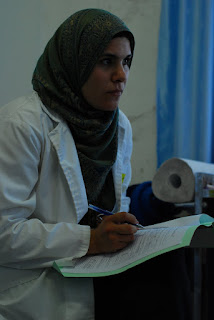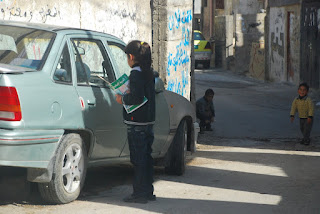 After getting back from Jordan I jumped right in on the action again and then it is back to a bus to a bus to a bus to a bus for a few hours of shooting here and there. I have spent the better part of my time this past week taking photos in two different refugee camps. One in the South in Arad and one in the North in Caramel aka Haifa. There is just so much going on in this country. Although both of these camps have the same idea, they are very different.
After getting back from Jordan I jumped right in on the action again and then it is back to a bus to a bus to a bus to a bus for a few hours of shooting here and there. I have spent the better part of my time this past week taking photos in two different refugee camps. One in the South in Arad and one in the North in Caramel aka Haifa. There is just so much going on in this country. Although both of these camps have the same idea, they are very different.
So let me back up. As you all know, because it is a very prominent news topic, the Sudanese in Darfur have been and are currently facing a hellish time with the current war. People who can are fleeing the country anyway that they can. In Arad there are over 800 refugees living in in these temporary homes that the government set up. The government doesn't really know what to do with them...why...well because they are not Jewish so this is a difficult problem. They have to continually renew paper work to exist here and they are only allowed to work for 2 months at a time in specific hotels in the Dead Sea. What a contrast you just escaped war and now you are serving cocktails to stuffy Americans what a life. These people in the South are luckier because it is families living together meaning they all made it out together, however life here is only a little better. They are not allowed to work so they are starving. When I went with COHI to do pre and post natal exams I was horrified to find out that these people are not eating. One of the woman was complaining that her baby was small and when one of the midwives I was with, Hillary, asked what she was eating the woman had to think for a while....really nothing... they can't afford food let alone medication and they are living here in Israel.
 Hiliary follwing up with a baby she helped birth last month
Hiliary follwing up with a baby she helped birth last monthIn the North the situation is very different and even more difficult to handle. The shelter in Haifa is a battered woman's shelter and started out as a clinic for local woman seeking refuge. Then one day in 2006 a border police contacted the shelter and were like... look we have this Sudanese woman and her daughter and if you don't take them we are sending them to prison. This was the first of the flood of immigrants that pour across the border into 2007.


Ok back up...Then you ask wait how did all of these people get to Israel. That's right they WALKED! Maybe one of the most difficult journeys you could ever imagine. After everything they experienced in the genocide of Sudan they cross the border into Egypt where.....they are shot at, imprisoned, beaten, abused, further raped and it is another run for their lives. So where do they run if they are lucky they run to the Israeli border. This border crossing is even more difficult. Let me quote this feature article from a Israeli paper called Haaretz "Last weekend Egyptian soldiers fatally shot a 7 year old girl and a man in his thirties, both of who were trying to cross into Israel. Since the start of the year 16 African refugees were killed trying to cross the border" (to read the rest of this article click here- http://www.haaretz.com/hasen/spages/997693.html). It is horrific.


Of the 15 women who currently live at the shelter, many of the woman are pregnant or have children (mostly the results of being raped). All of whom their husbands are either dead, missing, or in prison in Egypt. COHI was there to help provide health services for them- post natal and breastfeeding classes. Medicines are expensive and while it was really difficult to see these women suffer (most of whom wouldn't talk about their experience or were brought to tears recalling some of the events), I was happy to see that these woman had a place where they were finally treated as people and provided food and refuge while they waited to hear from their husbands. The clinic gets absolutely no funding from the government and is entirely run on donations. While this was a very intense and difficult experience it was heartening to see that someone is taking the steps to directly help these people. My only worry is that the shelter could handle 15 women what happens when it is 100? or 500? These people need help.
 Riding in a cab from Amman to Petra
Riding in a cab from Amman to Petra These are some young orthodox boys praying in the morning for the sun festival which occurs once every 28 years when the sun is in the same alignment that it was during creation.
These are some young orthodox boys praying in the morning for the sun festival which occurs once every 28 years when the sun is in the same alignment that it was during creation.  The busy center of Amman
The busy center of Amman Petra
Petra Petra
Petra Petra
Petra This is one of the men who showed me around Aqaba
This is one of the men who showed me around Aqaba finally relaxing on the Red Sea
finally relaxing on the Red Sea


 This is one of the four midwifes who works a 16 hour shift at the only birth center in all of the west bank. They see about 40 women a month and are severly underpaid. I got to see two women in labor while vising for less than 3 hours.
This is one of the four midwifes who works a 16 hour shift at the only birth center in all of the west bank. They see about 40 women a month and are severly underpaid. I got to see two women in labor while vising for less than 3 hours. The streets of Bethlahem in the morning before all of the shops are open
The streets of Bethlahem in the morning before all of the shops are open The countryside of the West Bank on the road to Jenin
The countryside of the West Bank on the road to Jenin
 Ok this is a place in Hebron no one on either side is happy about. This is the only place where a settlement is literally built on top of a Palistinian town. Bellow are the arabs and above are the Israelis. This is the town where they most conflict occurs. As you can see a fense had to be built above the arab village becuase the Isreali children throw rocks and trash down on the arabs as they walk through the streets.
Ok this is a place in Hebron no one on either side is happy about. This is the only place where a settlement is literally built on top of a Palistinian town. Bellow are the arabs and above are the Israelis. This is the town where they most conflict occurs. As you can see a fense had to be built above the arab village becuase the Isreali children throw rocks and trash down on the arabs as they walk through the streets. Crowded winding streets of the UN refugee camp
Crowded winding streets of the UN refugee camp The refugee camp was full of children like this playing and running around the streets darting in and out of cars
The refugee camp was full of children like this playing and running around the streets darting in and out of cars What was once the city center of Hebron now a deserted zone of conflict in the West Bank
What was once the city center of Hebron now a deserted zone of conflict in the West Bank This is a Palistinian boy looking into the gate of a street that is illigaly closed to him in Hebron. On the otherside (what you can't see in this picuture) are armed vehicles and soliders
This is a Palistinian boy looking into the gate of a street that is illigaly closed to him in Hebron. On the otherside (what you can't see in this picuture) are armed vehicles and soliders



